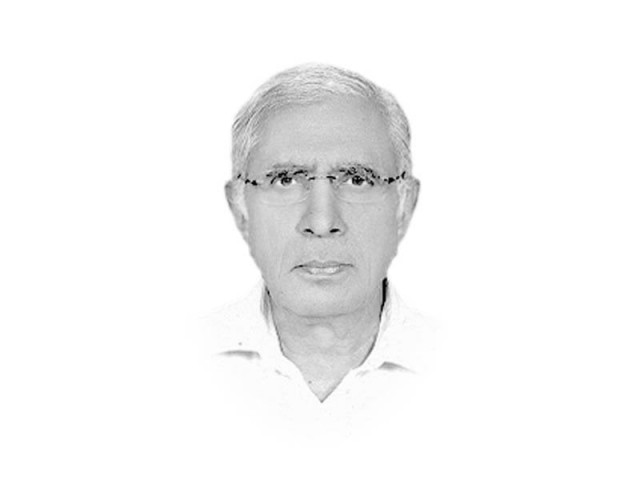The anatomy of ‘great people to fly with’
PIA’s managers & pilots had contributed crucially to the establishment of most of the Middle Eastern national airlines

The writer served as Executive Editor of The Express Tribune from 2009 to 2014
PIA’s managers and pilots had contributed crucially to the establishment of most of the Middle Eastern national airlines, which today are counted among some of the best in the world. And during the period when it was being managed by the late Air Marshal Nur Khan and then Air Marshal Asghar Khan, PIA was literally a company of ‘Great people to fly with’. Even today it provides the only link between the national mainstream and the remote corners of the country as far away as the four corners of Balochistan and the Northern Areas.
Of course, not everything of social value would be profitable and not everything that is profitable would be of social value. And to quote from an article, “Why governments should not be run like a business”, by John T Harvey in Leadership, a Forbes publication: “Reality TV, fashion shows and sports are all of questionable social value, but each is quite profitable and exists in the private sector. Meanwhile, few would argue that the Army, Navy, Air Force, Marine Corps, Coast Guard, police department, fire department, libraries, parks and public schools are of no social value, and yet, they could not exist if they were required to be profitable.”
A government has no business doing business. Sounds logical. But it is only a business-minded government, which can make a distinction between an enterprise that yields profits of immense social value and those that yield purely financial profits. Take for instance, the Pakistan Steel Mills. No matter how you run it, at the production capacity of 1.1 million metric tonnes, it can never be financially profitable even if you cut its fat to bare bones. Its social value is too dubious to merit any consideration. So sell it as it is even if it fetches only one dollar (the land in its possession should, however, be sold at market price) because every passing day would only add to its losses and increase the burden on the national budget.
However, this will never be true for PIA, Pakistan Railways, power-generation entities, Oil and Gas Development Company Limited, Pakistan State Oil, utility stores, National Bank of Pakistan, Civil Aviation Authority, Pakistan National Shipping Corporation, Karachi Port Trust and Port Qasim, etc. In rich countries perhaps, these entities would be better off in the private sector. But in poor countries like Pakistan, these entities have as much social value as the armed forces, security agencies, libraries, parks, public schools and public health institutions.
A government without business know-how would hardly be able to maximise social benefits of a public sector entity at a minimum financial cost. In most developed societies, this is done by establishing legally sound, autonomous statutory regulatory mechanisms. And even after such mechanisms are developed, air, road and rail transport, energy-related units, public schools and public health institutions, at least up to primary levels, would need to be kept under government control, no matter how much the cost.
A big chunk of unnecessary financial losses that these public-sector entities of social value are incurring currently can be eliminated by cutting down on waste and replacing inefficient managements with efficient ones. Also, their burden on the budget could be significantly eased if the government were to collect the taxes that are due to it from all its citizens who earn taxable incomes. Only a business-minded government would know the importance of enforcing tax laws, strictly across the board without exception and exemption.
Using an outdated colonial law to suppress a democratically legitimate right of protest by the PIA employees that has already cost a number of valuable lives needs to be condemned in the strongest of terms. Pakistan would do well to learn from the way its economically more advanced neighbour, India, has been handling such situations rather than put all its eggs in the IMF’s one-size-fits-all formula of austerity that has only increased its dependence on dole.
Published in The Express Tribune, February 5th, 2016.
Like Opinion & Editorial on Facebook, follow @ETOpEd on Twitter to receive all updates on all our daily pieces.















COMMENTS
Comments are moderated and generally will be posted if they are on-topic and not abusive.
For more information, please see our Comments FAQ